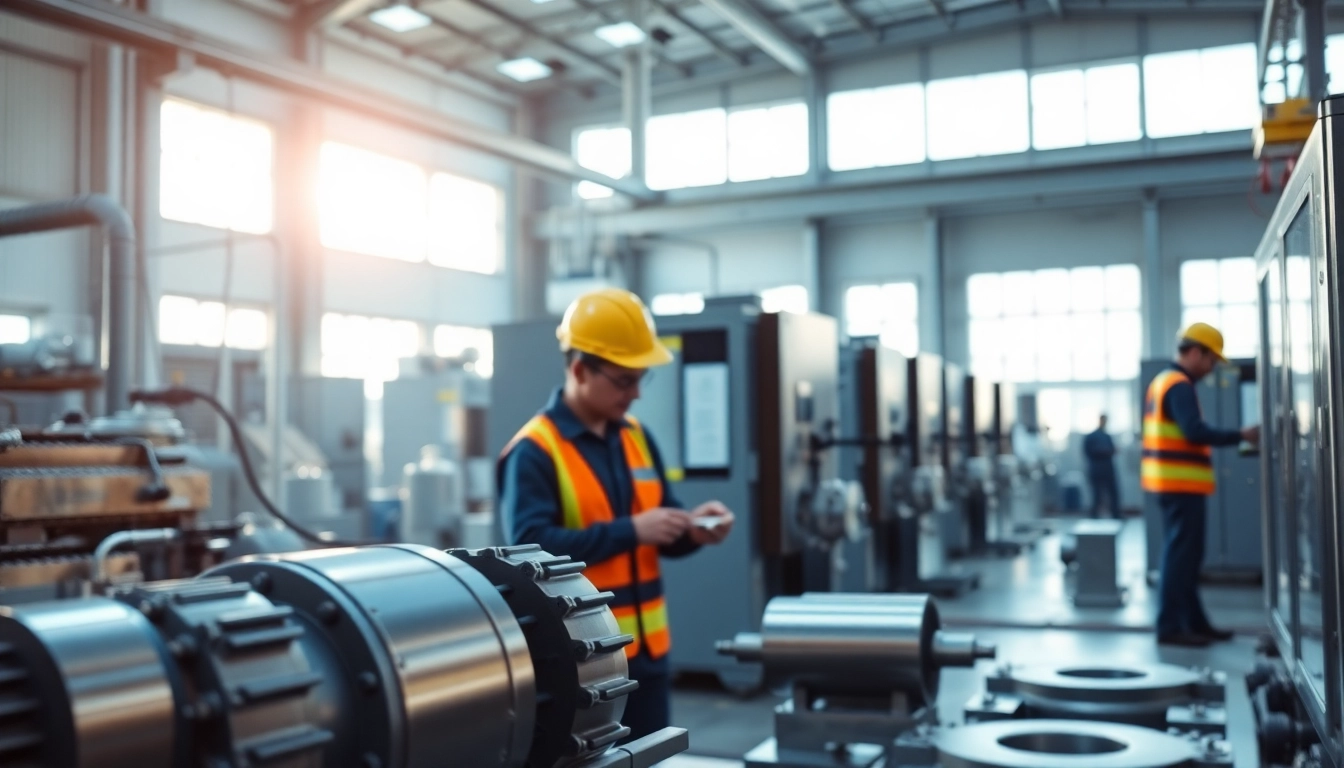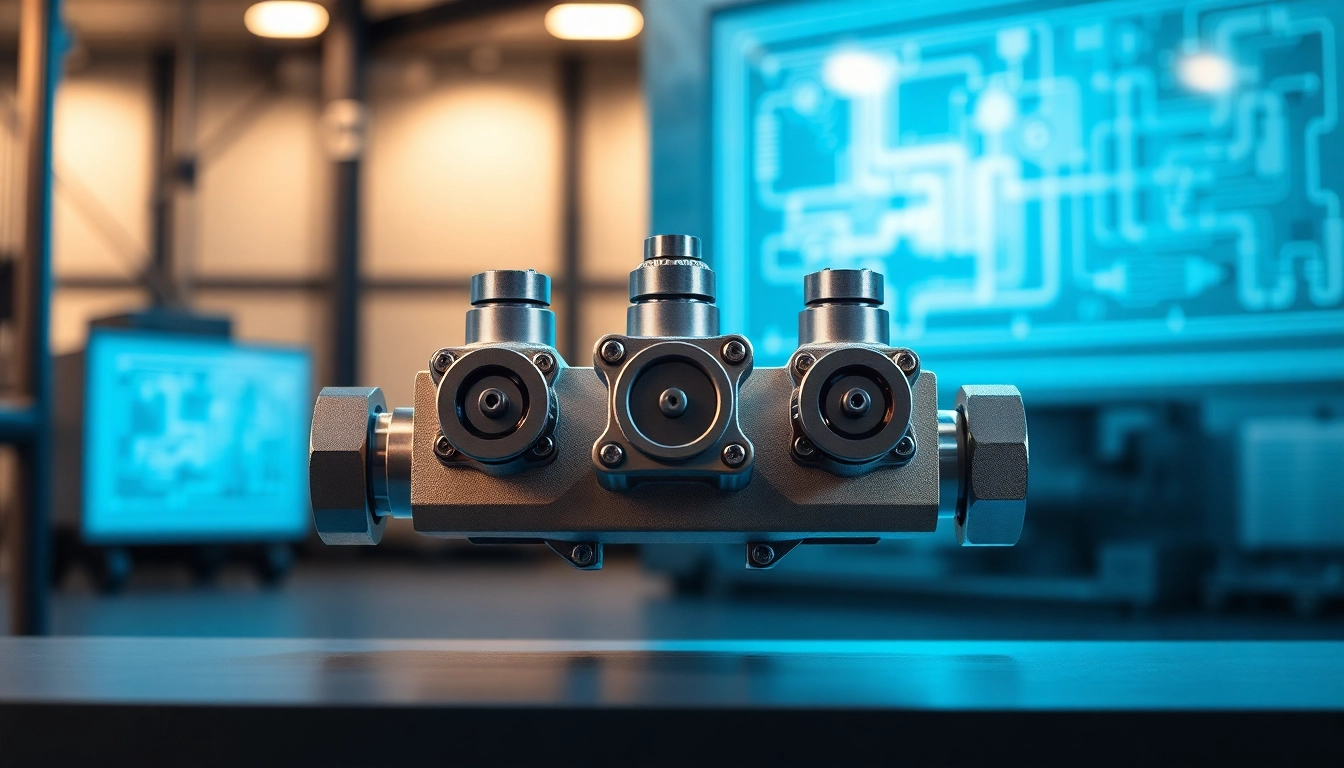Understanding Precision Die Casting
Precision die casting is a manufacturing process that utilizes a mold to produce components with high dimensional accuracy and a superior surface finish. This process is widely adopted across multiple industries, especially in Malaysia, where the die casting sector is rapidly growing. This article delves into the nuances of precision die casting in Malaysia, exploring its benefits, processes, and applications, while also highlighting where to find the best manufacturers, such as those specializing in precision die casting malaysia.
What is Precision Die Casting?
Precision die casting is a method that involves injecting molten metal under high pressure into a mold cavity. This method ensures that complex geometries can be fabricated with tight tolerances. The process is particularly beneficial for high-volume production runs, where consistency and quality are paramount.
Benefits of Precision Die Casting in Malaysia
- Reduced Manufacturing Costs: By producing parts in large quantities, manufacturers can lower the cost per unit.
- High Strength-to-Weight Ratio: Die-cast components often have better mechanical properties compared to other manufacturing methods, which is crucial for industries such as automotive and aerospace.
- Design Flexibility: The ability to create complex shapes and designs without compromising strength increases design possibilities.
- Sustainable Production: The die casting process can be more environmentally friendly, using less energy and generating less waste than other production methods.
Key Industries Utilizing Die Casting
Precision die casting is prevalent in various sectors, including:
- Automotive: For producing engine blocks, transmission housings, and structural components.
- Electronics: For manufacturing casings for devices and components that require precision.
- Consumer Goods: Such as tools, appliances, and decorative items.
The Process of Precision Die Casting
Step-by-Step Overview of the Die Casting Process
The die casting process can be broken down into several key stages:
- Preparation of the Die: The die is cleaned and lubricated to ensure the smooth release of the finished product.
- Melting the Metal: The metal (usually aluminum, zinc, or magnesium) is melted in a furnace until it reaches the desired temperature.
- Injection: The molten metal is injected into the die at high pressure, filling the mold cavity.
- Cooling: The metal is allowed to cool and solidify within the die.
- Demolding: Once solidified, the die is opened, and the component is ejected.
- Finishing: Any necessary secondary processes, such as machining or surface finishing, are performed.
Materials Used in Precision Die Casting
Common materials for precision die casting include:
- Aluminum: Lightweight with excellent corrosion resistance, ideal for automotive applications.
- Zinc: Known for its strength and ductility, often used in electronic applications.
- Magnesium: The lightest structural metal, suitable for aerospace applications.
Innovations in Die Casting Technology for 2025
As we move into 2025, several innovations are expected to shape the future of precision die casting:
- Smart Manufacturing: The integration of IoT (Internet of Things) will allow real-time monitoring and adjustments to the casting process.
- 3D Printing for Molds: 3D printing technology will enable rapid prototyping of molds, reducing lead times and costs.
- Advanced Materials: Development of new alloys and composite materials that enhance performance and sustainability.
Choosing a Precision Die Casting Manufacturer in Malaysia
Key Considerations for Selecting a Manufacturer
When selecting a precision die casting manufacturer, several criteria should be evaluated:
- Experience: Look for manufacturers with a proven track record in your specific industry.
- Capabilities: Ensure the manufacturer has the right machines and technologies to meet your production needs.
- Certifications: Check for ISO and other relevant certifications to gauge quality standards.
Evaluating Quality Assurance and Standards
Quality assurance is critical in die casting. Companies should implement rigorous quality control measures throughout the manufacturing process to ensure products meet specified tolerances. This includes regular inspections and testing of materials and finished products.
Cost Factors in Precision Die Casting Services
Cost can vary widely depending on several factors including:
- Material Selection: Different metals come with varying price points.
- Complexity of Design: More complex parts often require more intricate molds, increasing costs.
- Production Volume: Higher volumes can lead to lower per-unit costs due to economies of scale.
Applications of Precision Die Casting
Automotive Industry Applications
The automotive sector relies heavily on precision die casting for various components:
- Engine Parts: Components such as cylinder heads and engine blocks are frequently die cast from aluminum.
- Transmission Components: Die casting is used for producing lightweight and durable parts that can withstand operational stresses.
- Chassis Parts: Structural components that benefit from the strength-to-weight ratio provided by die casting.
Electronics and Electrical Components
In the electronics industry, die casting is crucial for creating housings and heat sinks. These components require precision engineering to ensure functionality and performance, making die casting an optimal choice.
Consumer Products and Industrial Tools
Precision die casting is also used in manufacturing everyday consumer products such as household appliances, tools, and decorative items, providing both aesthetic and functional qualities.
Future Trends in Precision Die Casting in Malaysia
Emerging Technologies in Die Casting
Technologies such as artificial intelligence and machine learning are being integrated into die casting processes, allowing for better optimization, predictive maintenance, and enhanced production efficiency.
Sustainability Practices in the Die Casting Industry
With growing concerns over environmental impacts, many manufacturers are adopting sustainable practices, such as recycling scrap metal and utilizing energy-efficient production techniques.
Market Predictions for 2025 and Beyond
The die casting market in Malaysia is expected to witness substantial growth over the coming years, driven by increasing demand in the automotive and electronics sectors. Innovations in technology and materials will further enhance the industry’s capabilities, making precision die casting a pivotal manufacturing process well into the future.


